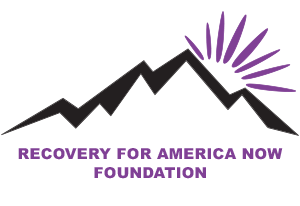Jordan
Throughout my teenage years, my peers all looked forward to their 18th birthday. I couldn’t wait, either. At 18, I would be taken seriously by other adults. I would be graduating high school and partying. I would start the rest of my life. Instead, I spent my 18th birthday in rehab.
Just eleven days before, I broke down in my room and confessed to my mom, who is 36 years sober, that I was addicted to marijuana and that I needed help. I told her that I couldn’t keep stealing money from my family and marijuana from my friends; I couldn’t continue to slip in my classes, damage relationships, and lie to loved ones. Most importantly, though, I needed to recognize the stranger in the mirror who stared at me with hollow eyes and a broken spirit.
Eventually, I accepted the reality of my addiction. But acceptance came with both shame and embarrassment. I felt like an outsider in rehab and in the rooms of 12-step meetings because the voice that told me my addiction didn’t exist began telling me that I was enough of an addict. For the first few months of my recovery I felt whiplash. In meetings, I told myself I don’t belong here, while also identifying with everyone in the rooms. For more than a year, I exclusively introduced myself as an alcoholic or as someone who was addicted to alcohol and marijuana, in that order. While I also had an inability to control my drinking, my drug of choice was always marijuana. I believed that pretending that alcohol was my primary issue would prevent anyone from questioning my validity as an addict. Seeing social media comments ridiculing people, including myself, who speak publicly about marijuana addiction hasn’t helped, either.
I now have over 3 years of sobriety, which was made possible by participating in Narcotics Anonymous meetings, going to an outpatient rehab program, attending therapy, and receiving an abundance of support from friends and family. While the support I have received throughout my recovery has made the journey easier, the hardships I have faced were difficult. Through withdrawals causing unbearable nausea, cravings, and going through college in sobriety, nothing has damaged my recovery more than the stigma surrounding marijuana addiction. I had heard for years from peers that marijuana was not addictive. Over time, I internalized that message and even argued it myself to anyone who expressed concern over my use. The deeper I fell into my addiction, the more I convinced myself that what I was experiencing was impossible.
Still, with the support of 12-step programs and loved ones, I persevered. I discovered that spreading my story of addiction has also helped maintain and strengthen my own recovery. Because of my openness, peers have come to me to discuss their own problems with addiction. Those experiences have confirmed to me that I am not alone, and that there are those who struggle in silence who need the support of their communities. The connection with the world around me that I feel today reminds me that I have come a long way from my days of isolation in active addiction. Through sobriety, I have been able to move forward on my road to recovery. I strive to help others make progress on their journey in recovery, too.

